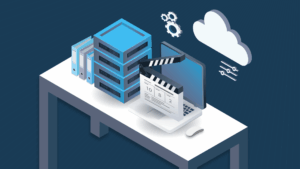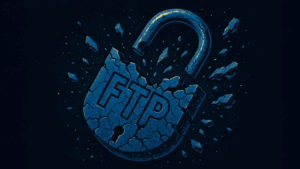
Librarians Think Differently: Why we should all thank the Library of Congress
Over the years, many of us at Signiant have come to greatly appreciate the work being done at The Library of Congress. With James H. Billington’s pending retirement after 30 years as the Librarian of Congress, I wanted to express my gratitude for the important and challenging mission they’ve undertaken over the past several decades.
The Library of Congress has the largest archive of knowledge in the world. No other place has the resources and ability to preserve and document our culture, from the earliest days of cinema to the most significant webpages posted online. They receive footage from around the country, including major broadcast studios and sports teams who send tape reel archives to LOC for preservation.
The Digital Preservation Initiative
The Library of Congress is leading the effort to develop a national strategy to collect, archive and preserve digital content through a program called the National Digital Information Infrastructure and Preservation Program (NDIIPP). It supports the Library’s larger goal of preserving a universal collection of knowledge and creativity for future generations.
For text-based documents, the process of preservation, archiving and making available to the public is fairly straight forward, but for audio/visual media things gets far more complex. The Library’s plan spans about a hundred years, covering every type of film and video technology. This includes both the means to preserve original content but also the sometimes-archaic devices necessarily to watch it. Additionally, every effort is made to transition that original content as purely as possible to a digital or file-based format.
Librarians think differently
What I have come to appreciate above all else is how different librarians think from, say, the businessperson or technologist, and just how important that mindset is. I’ve learned that in preserving content, librarians have to plan access to content for purposes that might not be apparent now. The content must be just like the original, because we don’t know what people in the future might want to know. They also plan ‘what’ to archive since there is just so much content being created. It’s a big responsibility to decide what will be preserved and available to humans 100 years and more into the future.
Technology moves fast
Attempting to preserve every form of media technology that’s been developed over the last century is monumental and the Library employs technology of their own to do so. Their vast infrastructure is state-of-the-art with means to share, manage, document and store files, as well as check for the purity of the digitized forms.
We are so lucky that our society supports this initiative. Just think about what it would take to be able to view the most significant webpages that have been posted in the history of the Internet. How would you look at a page that was developed for a NetScape browser, for example? LOC employs technologists that develop and maintains those means and much more.
And, it’s worth it; the implications for LOC’s digital preservation initiative are huge. No other archeological footprint humanity has left behind will be quite as telling as the digital era’s… if it is preserved.
The Library of Congress is making history and helping us tell truer stories
If you think about it, even today, our kids are learning the story about history that was interpreted and written down by someone. Having direct access to recordings of historical events — news, opinion blogs, the average citizen’s video footage, television shows, educational materials, etc. — will make the history that we teach future generations far more accurate. It’s like having the original artifacts of a time period open for everyone to access, learn from and hopefully improve the world with.
As a technologist, I admire the intricate technological processes and expertise housed in the Library. The amount of information they are processing is just massive. And without a librarian’s mind that recognizes the history that is being made right now and sees the need to document and preserve it, surely, most of it would be lost and forgotten.





